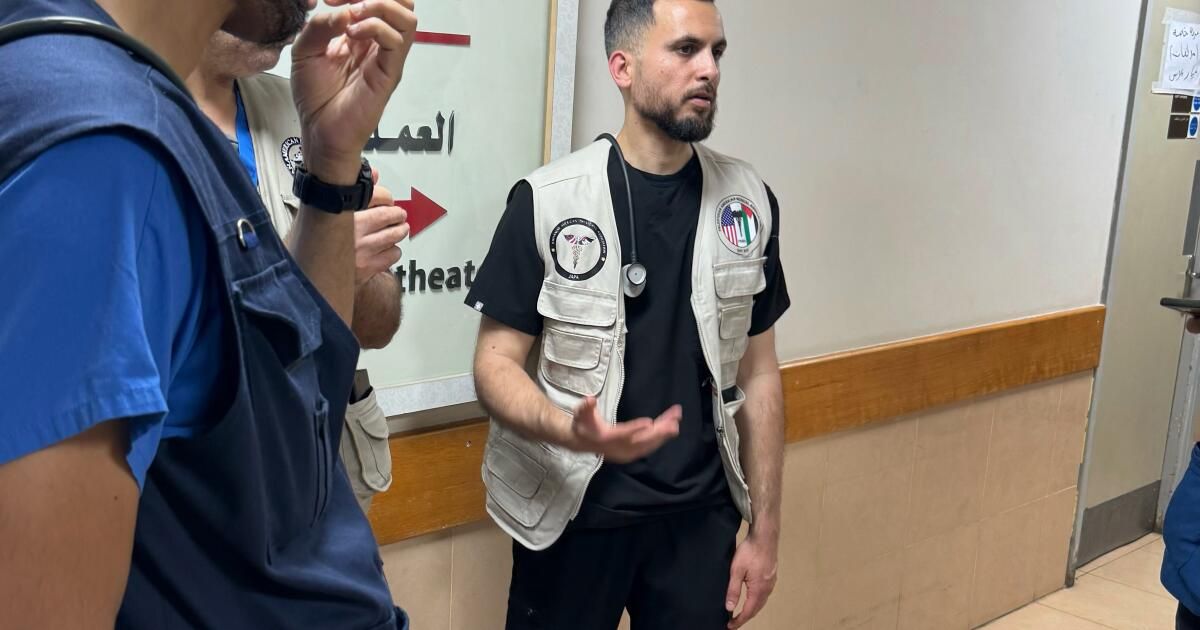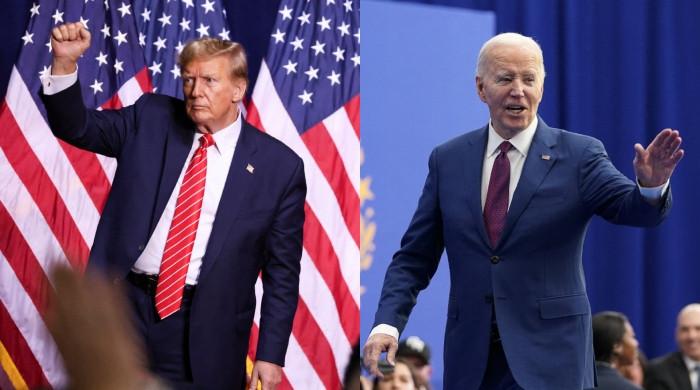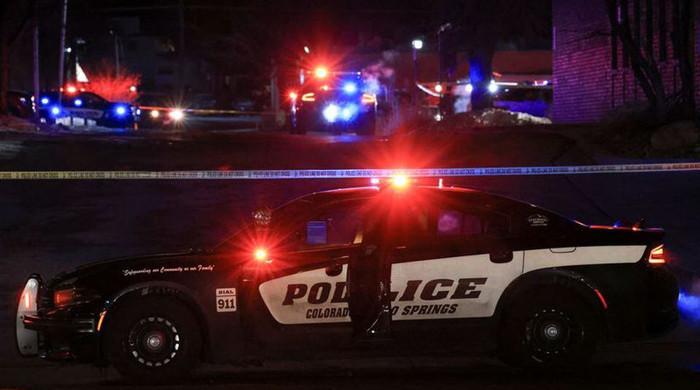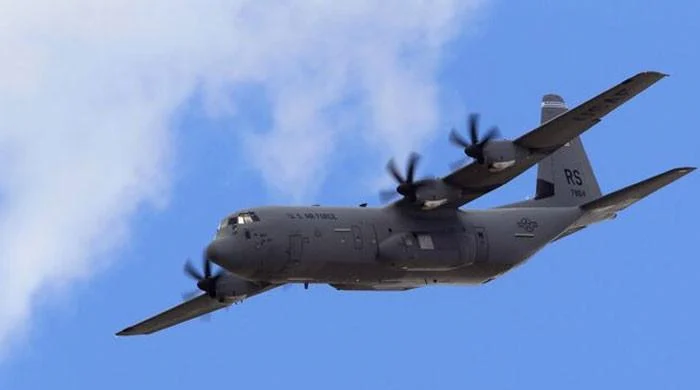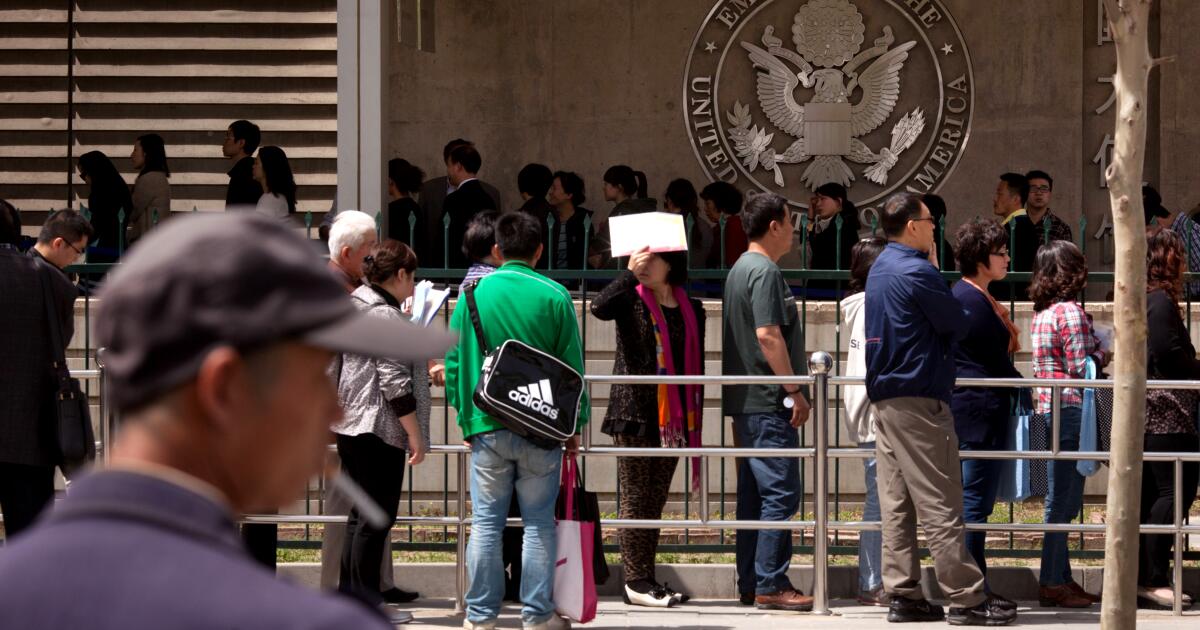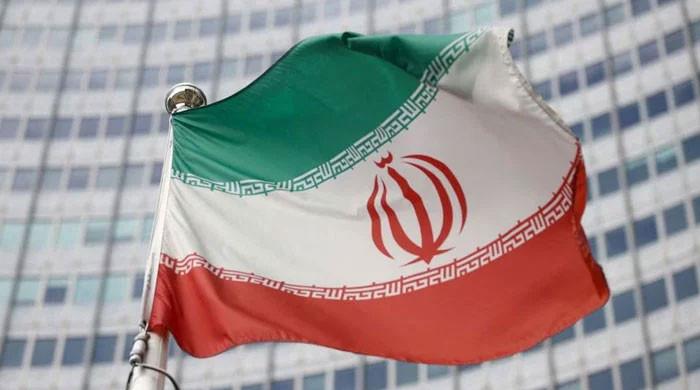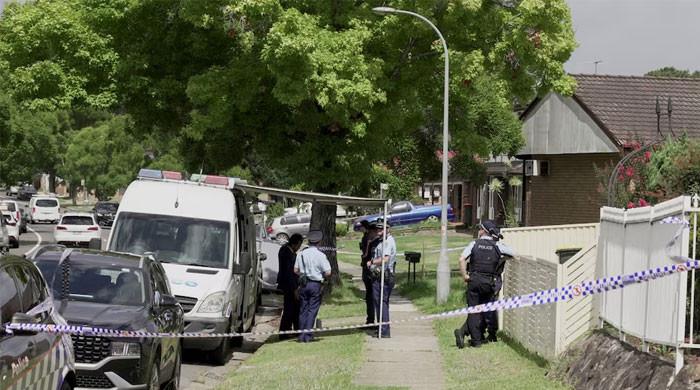Mohamad Abdelfattah was supposed to land at LAX on Tuesday at 11:45 a.m., where his wife, baby, and young son would be waiting for him, celebrating his safe return from Gaza.
But Tuesday came and went, and Abdelfattah, an intensive care doctor, was still in the southern city of Rafah, with no way out.
He was at the end of a two-week trip volunteering at one of the few hospitals that has remained open in the besieged city, day after day trying to save lives as Israeli airstrikes pounded neighborhoods.
Then last week, after a Hamas rocket attack killed four Israeli soldiers, border crossings with Egypt and Israel were closed.
Abdelfattah's wife, Donya Salah, waited at their home in Orange County with her phone at hand.
“Could you be careful?” she texted him Wednesday morning after he asked her to cancel her appointments for next week at Martin Luther King Jr. Community Hospital in South Los Angeles.
“Yes,” he replied. “Doing the best I can.”
Salah, 30, knew then that he was worried too.
Speaking to The Times on Tuesday, Abdelfattah, 37, described his growing frustration as the war between Israel and Hamas has intensified a humanitarian crisis that is pushing Rafah, a city home to nearly a million refugees who have fled from the fighting in the north, into ever-deepening chaos. .
Israel ordered the evacuation of neighborhoods east and south of the hospital in what it calls a “limited operation” but which many believe is the beginning of a more significant incursion.
Palestinians take shelter from Israeli bombing at the European Hospital on December 26, 2023.
(Hatem Ali / Associated Press)
More than 35,000 Gazans have been killed in Israeli retaliatory strikes since October 7. Nearly all of the Gaza Strip's 2.3 million residents have been displaced, and about half are at imminent risk of famine, international health officials say.
After arriving at the European Hospital with a team of 19 volunteers from the Palestinian American Medical Association, Abdelfattah was stunned to see so many people (by his estimate, thousands) sheltered inside the facility and on its grounds.
Families lived in the hallways and their privacy was maintained by sheets hanging from the ceiling.
“Kids were running in and out of the sheets,” he said. “The babies were crying. “You could smell the food.”
Abdelfattah, trained as a pulmonary and intensive care doctor, had been at MLK for three years. The memory of the pandemic and the second wave of Covid infections was still fresh in his mind: drowning in 12-hour days, multiple codes at once, cardiac arrests. He thought he would be prepared for a war zone.
But the intensive care unit here was in a state of “complete chaos.”
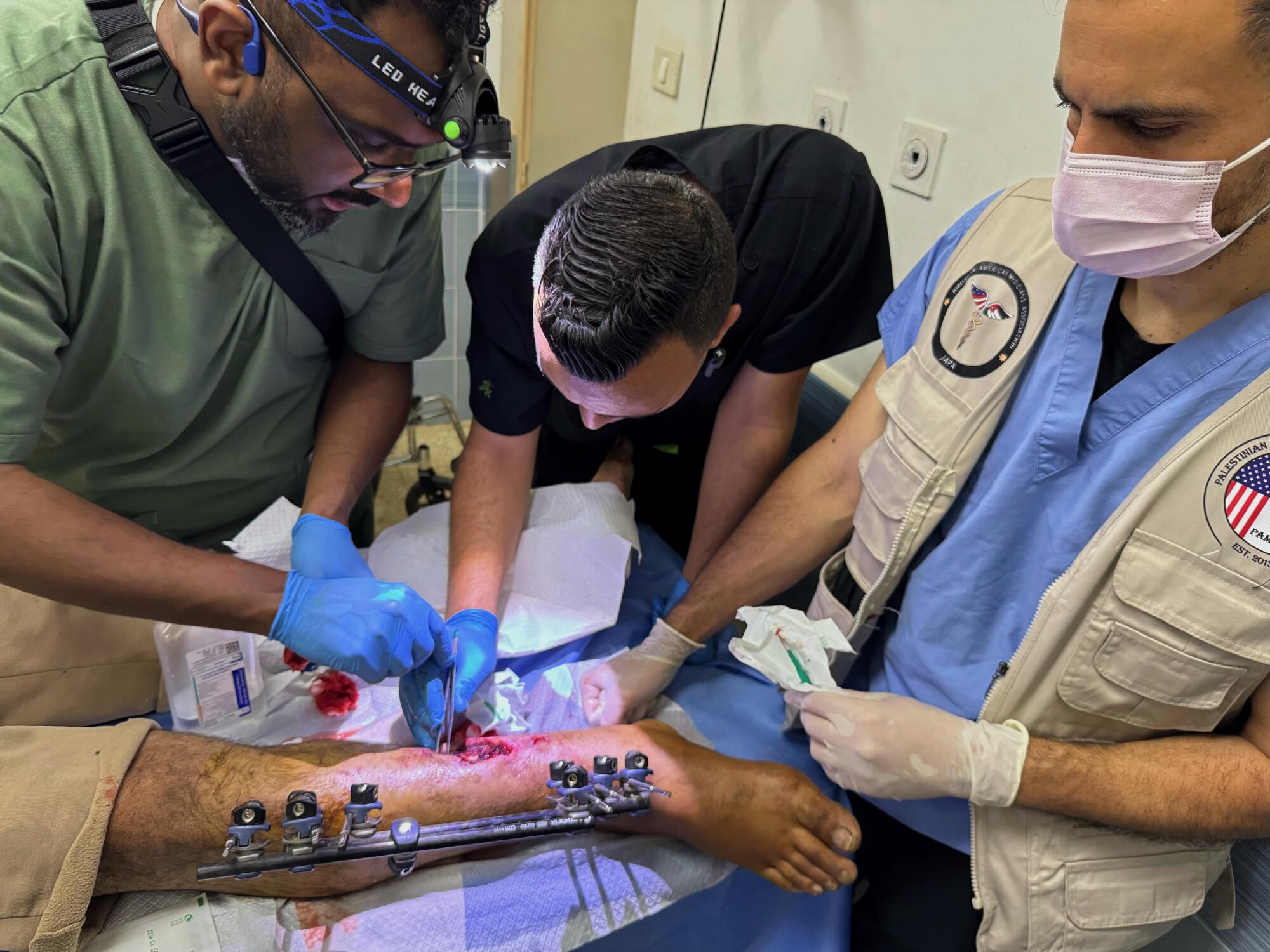
Dr Mohamad Abdelfattah, 37, right, supervises the treatment of a patient at the European Hospital in the southern Gaza Strip.
(Courtesy of Dr. Mohamad Abdelfatah)
“The patient monitors were constantly calling,” he said. “There was no infection control, no hand soap, no contact gowns. There were flies everywhere, landing on the wounds. “The staff were exhausted and exhausted.”
One of his first patients was a girl whose leg was cut to the bone by shrapnel. Another little girl with head trauma was intubated; Her mother, who was close to her, kept saying that she wished she could trade places with her daughter.
Abdelfattah was not used to pediatric cases; He had not anticipated seeing so many children. He remembered his.
Their second child had just been born in December. Her two-and-a-half-year-old son was just learning to ride a scooter. The little boy enjoyed playing on the swings in the park near his house.
After the Oct. 7 attack on Israel by Hamas raiders that killed about 1,200 people, Abdelfattah feared for Gaza. He knew from experience that the retaliation would be brutal.
He had first visited the narrow, dense strip of land in 2009 with a humanitarian aid convoy, allowing him to see firsthand the destruction caused by urban battles with Israel months earlier.
His grandfather had immigrated to the United States from the West Bank in the 1970s, and as an undergraduate at UC Irvine, Abdelfattah was active in the Muslim Student Union, drawing attention to the plight of the Palestinian people.
“Growing up without a future, without hope,” he said, “that is not the environment in which one wants to grow.”
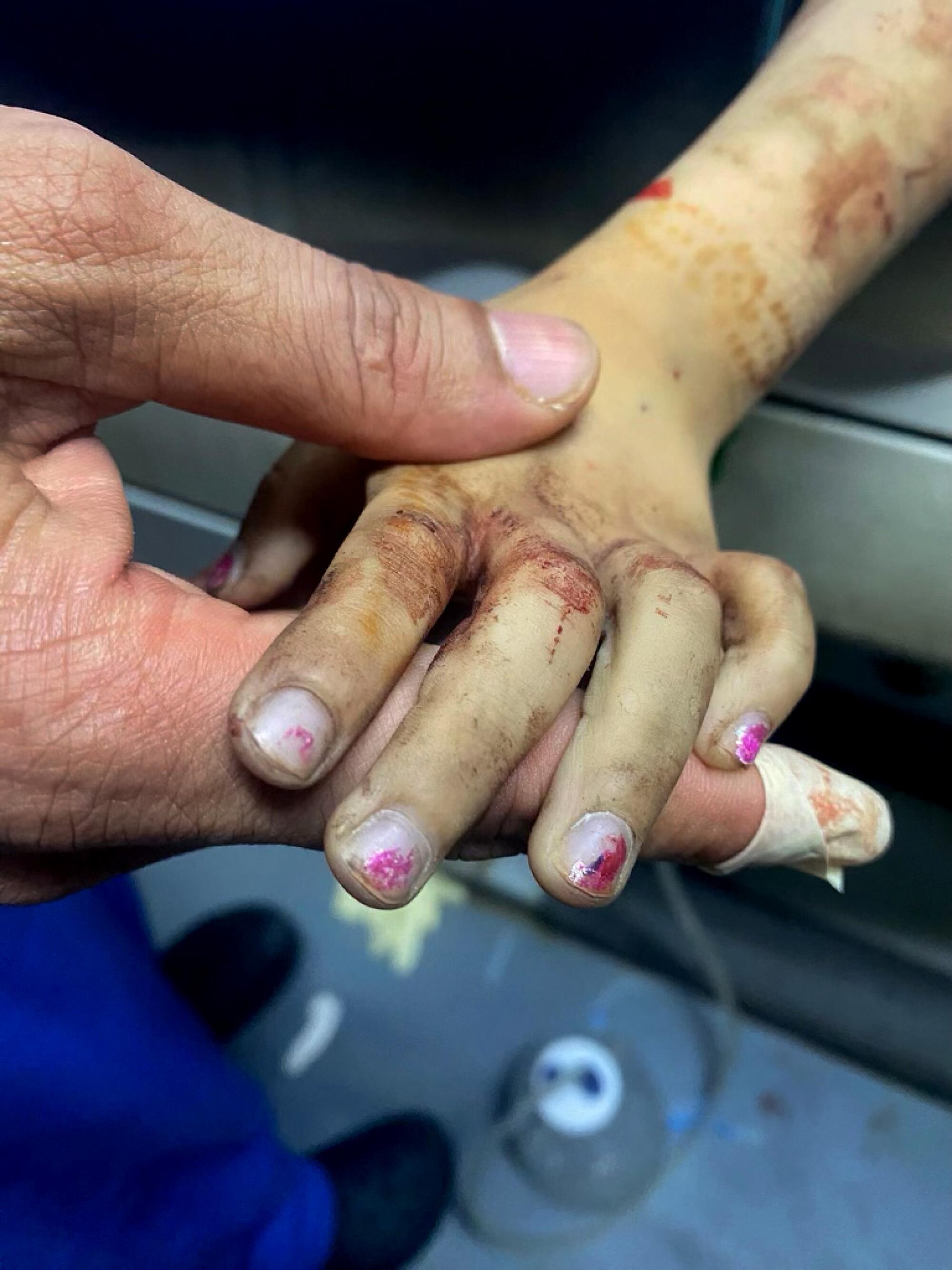
A colleague of Dr. Mohamad Abdelfattah holds the hand of a 5-year-old girl, with pink glitter on her nails, who arrived at the European Hospital after an Israeli airstrike. Abdelfattah, who was nearby and lives in Orange County, is a pulmonary and ICU doctor at Martin Luther King Jr. Community Hospital in South Los Angeles.
(Courtesy of Dr. Mohamad Abdelfatah)
Shortly after October 7, Abdelfattah co-founded Orange County for Justice in Palestine with the goal of building support among local politicians for a ceasefire.
But after weeks of campaigning and demonstrations with little results, he wanted to do more.
When the Palestinian American Medical Association. When she called for doctors to volunteer in Gaza, she told Salah that he had to go.
Their conversation was difficult, he said. They were settling into a new home in Tustin and with the baby she needed him nearby.
They talked about the Israeli attack that killed seven members of World Central Kitchen and what she would do if he died.
Not wanting to worry their families, they shared their decision just two weeks before their departure.
Flying from LAX to Istanbul and then to Cairo, he and the medical team crossed into Rafah with nearly 250 suitcases filled with medications, feminine hygiene products, candy, coloring books, water purification tablets and other supplies.
The group stopped to take a photo in front of a sign that said “I LOVE GAZA” and Abdelfattah, for a brief moment, felt happy. “This is where I wanted to be,” he said.
At the European Hospital, the sounds of explosions from the air raids were inescapable. The drones droned relentlessly overhead. The severity of the injuries was compounded by infections and a lack of supplies.
At night, Abdelfattah would call Salah and tell him something about what he was experiencing. She realized he was trying not to worry her.
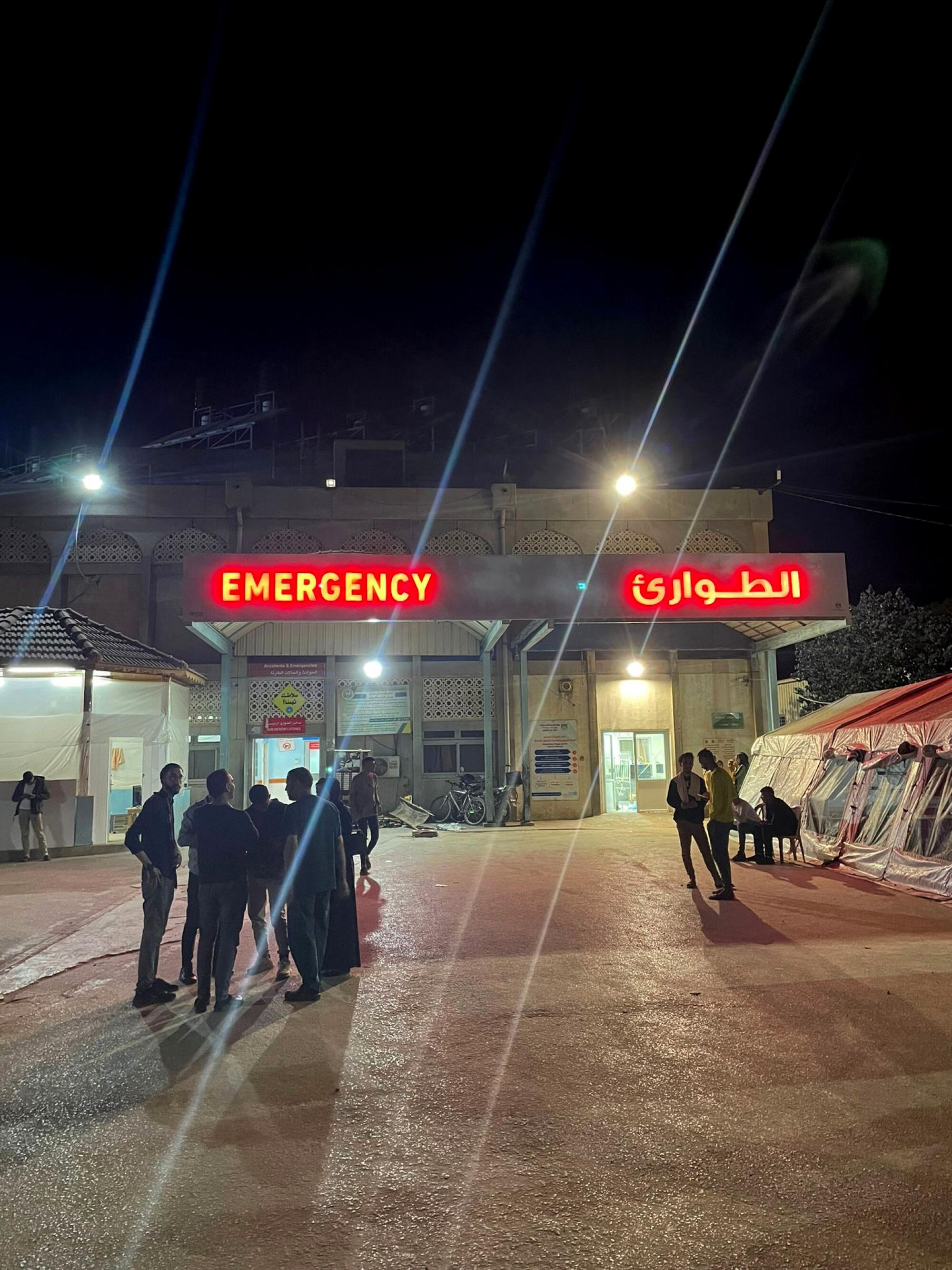
Outside the European Hospital in the southern Gaza Strip.
(Courtesy of Mohamad Abdelfattah)
He told her that he was exhausted and couldn't sleep more than two hours at a time. He and 40 other medical staff were staying in a dormitory at the nursing school. They slept on mattresses on the floor. The hospital staff prepared all the food available.
After morning prayer, he would go to the emergency room and start his shift.
A week into the two-week rotation (on May 6), news came that Hamas had accepted the terms of a ceasefire proposed by Egyptian and Qatari mediators.
Abdelfattah remembered the celebration (children singing, fireworks), but within an hour explosions could be heard in the distance. The bombardment continued. There was no ceasefire.
Israel had ordered the evacuation of the eastern neighborhoods of Rafah for a “limited” operation. For Abdelfattah and others, the action seemed like the beginning of the long-awaited invasion of the city.
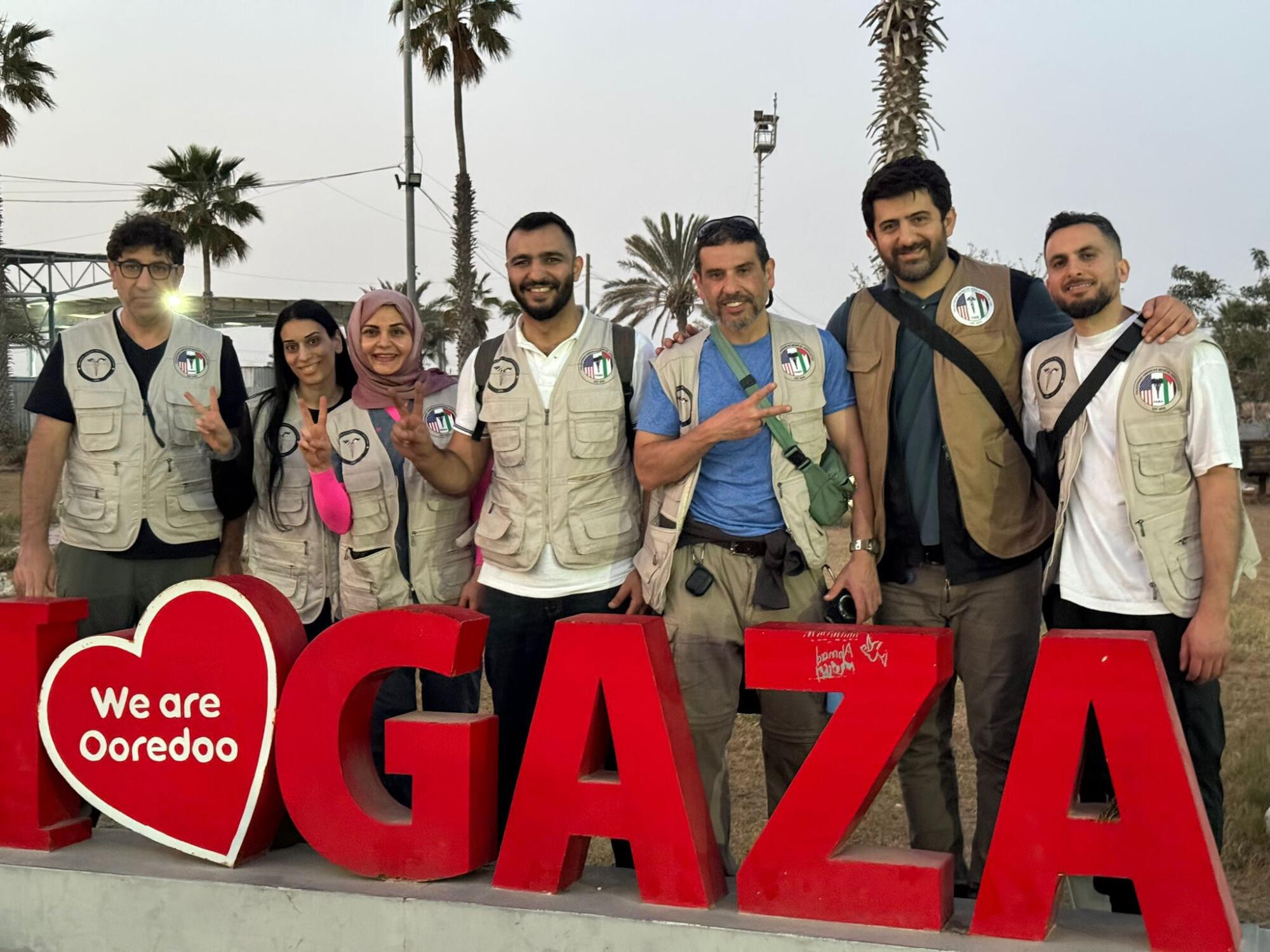
After a long trip from Los Angeles via Istanbul and Cairo, Dr. Mohamad Abdelfattah, 37, arrived in Rafah with other medical professionals who had signed up for a two-week rotation at the European Hospital. At the border crossing, the group stopped to take a photo in front of the sign that said “I LOVE GAZA,” and Abdelfattah was briefly happy. “This is where I wanted to be,” he said.
(Courtesy of Dr. Mohamad Abdelfatah)
He had heard that tanks had run over the “I LOVE GAZA” sign and that a United Nations convoy heading to his hospital had been attacked, leaving one dead and one wounded.
Buses began transporting people from the hospital to a safety zone on the coast, he said, and the hospital hallways became less crowded. The bombardment continued. He felt the jolts as the explosive waves shook the windows.
He also noted that most Gazans didn't even flinch.
“People have been very traumatized over the last seven months,” he said, “and everyone has stories: destroyed homes, loss of multiple family members, moving and evacuating four, five times. Nothing is safe”.
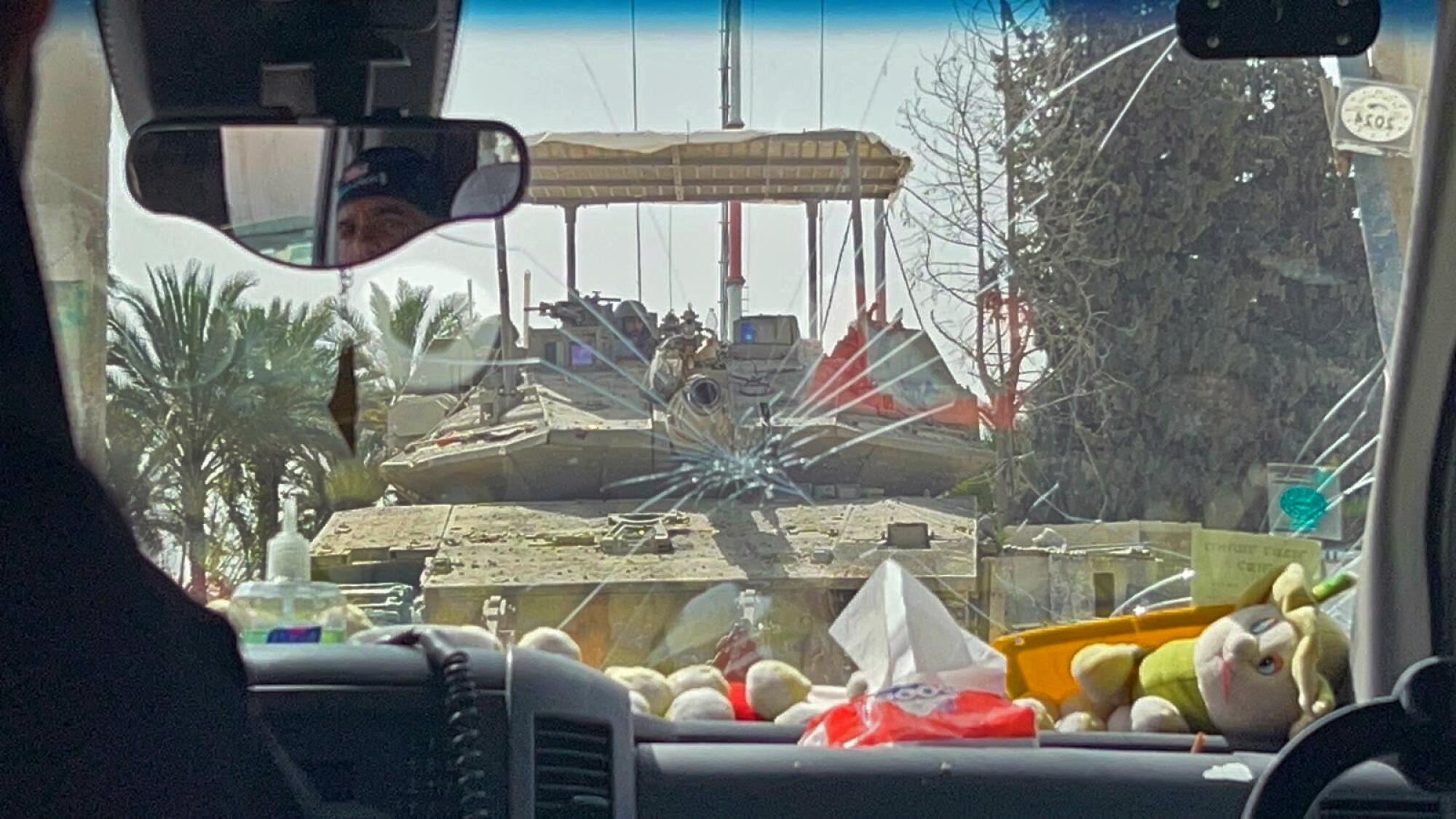
On Friday morning, Dr. Mohamad Abdelfattah and some American medical staff working as volunteers at the European Hospital in Rafah were able to leave the besieged city. At the Kerem Shalom border crossing, they encountered an Israeli tank, which eventually backed away and let them pass. Abdelfattah is now in Jerusalem and intends to return to Los Angeles this weekend.
(Courtesy of Dr. Mohamad Abdelfattah)
Patients continued to arrive, mostly with severe burns, mostly children. After a recent strike near the hospital, he went to the intensive care unit, where doctors were caring for a brother and sister, both under 2 years old.
“The prognosis is not good,” he wrote in a text.
Then, on Thursday night, the medical team learned that the US embassy in Jerusalem had arranged for his evacuation. They would leave at 6 in the morning the next day.
Some doctors decided to stay. Abdelfattah was torn. But he had promised Salah that he would leave when he had the chance. His son had been asking about him.
The road to the border took them through neighborhoods that had been destroyed. The minarets of all the mosques they passed were torn down, he said.
At the last checkpoint, an Israeli tank blocked their path before finally turning back.
Once in Jerusalem, Abdelfattah went to the Al-Aqsa Mosque to pray. The serenity, so palpable, he said, was surreal: for the first time in two weeks, there were no drones or bombs.
“I wish it were like that in Gaza,” he said.

